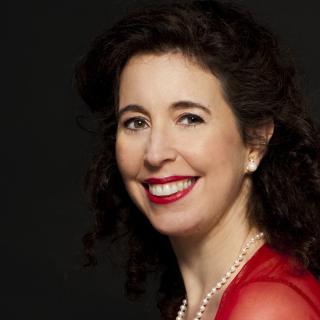With over a hundred recordings and six Grammy Awards to his name, maestro Leonard Slatkin makes his debut in front of the HPO. Pianist Angela Hewitt brings to the concert hall treasures from the world of Mozart’s concertos ennobled by experience. Wolfgang Amadeus Mozart performed his own Piano Concerto in E-flat major for the first time in Vienna in 1785. The audience was enamoured with the sad slow movement of the concerto that varied the tragic theme, demanding to hear it again immediately as an encore.
“Suk's Angel of Death is not for the faint-hearted” (Independent). Josef Suk began composing his symphony, named after the angel of the death of Israel, in memory of his father-in-law, Antonín Dvořák. While the symphony was still on Suk’s desk, his wife, Dvořák's daughter, passed away. Composed in the shadow of death, the symphony became a testament to the composer's power and salvation: “Music saved me.”
Watch and listen both live and on-demand through the Yle Areena and via the HKO Screen-app.
https://areena.yle.fi/1-50996065
Watch live and discuss through the orchestra's YouTube channel
LINK TO YOUTUBE
Leonard Slatkin
Internationally acclaimed conductor Leonard Slatkin (b. 1944) is the son of musical parents of Ukrainian descent and spent his youthful years in Los Angeles. He has received six Grammy awards and 35 nominations, prestigious national medals in, among others, France, Austria and the USA, and the League of American Orchestras’ Gold Baton Award. He first studied composition but soon changed to conducting, first at Aspen and later the Juilliard School and has since has conducted virtually all the leading orchestras in the world. As Music Director, he has held posts in New Orleans; St. Louis; Washington, DC; London (with the BBCSO); Detroit; and Lyon, France. He has also served as Principal Guest Conductor in Pittsburgh, Los Angeles, Minneapolis, and Cleveland.
Angela Hewitt
Her interpretations of the music of J.S. Bach have established Canadian pianist Angela Hewitt as one of the composer’s foremost interpreters of our time. “My journey with Bach began from the day I was born, if not before,” she says. She gives marathon recitals of, for example, the complete Das Wohltemperierte Klavier and tours the world with her Bach Odyssey. By the time she won the International Bach Piano Competition in Toronto in 1985, she had already reaped numerous prizes over the previous decade and nowadays gives about 100 concerts a year, often also conducting from the piano. In her orchestral concerts she focuses particularly on the Mozart concertos. Now making her debut with the HPO, she has previously been heard in Finland with the Finnish Radio Symphony and the Lahti Symphony Orchestra.
Cindy McTee: Circuits
“Circuits was written in 1990 for the Denton Chamber Orchestra and conductor Jonathan B. Roller of Denton, Texas. The title, Circuits, is meant to characterize (1) the use of a formal design incorporating numerous, recurring short sections and (2) the presence of an unrelenting, kinetic energy. The inclusion of jazz elements and the playful manipulation of musical materials using syncopation, sudden transposition, and juxtaposition are also characteristic of the work.”
Thus writes Cindy McTee (b. 1953), hailed by critics as a composer whose music reflects a ‘charging, churning celebration of the musical and cultural energy of modern-day America.’ Winner of numerous awards and commissions, she has composed music in many forms including jazz, orchestral, chamber and electronic. One of her teachers was the eminent Polish composer Krzysztof Penderecki. In 2011, Cindy McTee retired from her post of Professor at the University of North Texas and married conductor Leonard Slatkin.
Wolfgang Amadeus Mozart: Piano Concerto No. 22 in E-flat Major KV 482
The 12 piano concertos composed by Wolfgang Amadeus Mozart (1756–1791) between 1784 and 1786 rank among his greatest. That in E-flat Major KV 482 is thought to date from 1785, and Mozart is known to have been the soloist in at least three performances of it in Vienna. For as father Leopold wrote to his daughter Nannerl in 1786, “I have had a reply from your brother in which he says that he gave without much preparation three subscription concerts to 120 subscribers, that he composed for this purpose a new piano concerto in E-flat, in which (a rather unusual occurrence!) he had to repeat the Andante.” Mozart was at the time working on his opera The Marriage of Figaro, and many claim to hear a certain affinity between the two. It was his first use in an orchestra of an instrument, the clarinet, that would soon became a firm favourite with him. His own concerto cadenza has not been preserved.
Josef Suk: Asrael Symphony, Op. 27
Josef Suk (1874–1935) began writing his great Asrael Symphony in early 1905, shortly after the death of his fellow-Czech father-in-law Antonín Dvořák. By the summer, he had completed three of the five movements of a work that, though serious, would end optimistically. But then his 27-year-old wife Otilie unexpectedly died. “Such a misfortune either destroys a man or brings to the surface all the powers dormant in him,” he said. The title, Asrael, refers to the Angel of Death. Suk continued: “It’s been said of this work, and about other works of mine, that they’re subjective in the extreme. They do, of course, stem from life experience, but with their musical and human content they address all mankind. When, after the stormy and nerve-wracking last movement of the symphony, the mysterious and soft C major chord is heard, I often notice that it brings tears to people’s eyes, and these tears are tears of relief, tears that purify and uplift – they are, therefore, not just my tears.”

